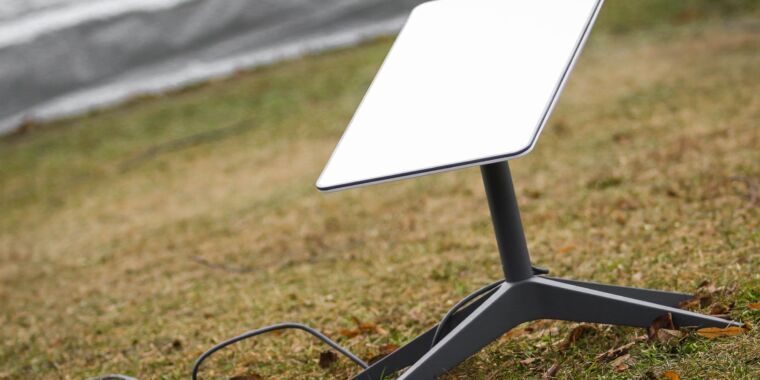- cross-posted to:
- [email protected]
- [email protected]
- cross-posted to:
- [email protected]
- [email protected]
SpaceX blasts FCC as it refuses to reinstate Starlink’s $886 million grant::FCC doubts ability to provide high-speed, low-latency service in all grant areas.



Yes. Verizon, AT&T et al
They pulled wire for miles to service rural areas and are maintaining a network to service rural customers. The BOCs are why there are RUS funds
They were paid to provide broadband services to the rural areas. As millions of people living in the rural areas can attest, the majority of their promises were not fulfilled.
They’ve been paid multiple times to do it.
No. They were paid to provide services, which is what they did/do. The rural customers pay no more than urban customers but use a hell of a lot lot more infrastructure. Broadband is now a service that can be used for RUS, that’s all.
Hi, it’s me with my rural community that doesn’t have service at all.
Whereabouts
I have friends who live within a handful of miles of DC with ZERO wired infrastructure. Fortunately that part of the US is pretty flat, and an LTE provider decided to cover the area.
Mind, they’re about 1 mile from a major highway, so it’s not like they’re in the back woods.
The cable company was paid to build to that area 40 years ago, but never did it.
I agree building out wired infrastructure seems to make the most sense, as it’s pretty robust, and we’re often finding new ways to increase effective bandwidth (even on good old telephone wires). But it’s a bit of chicken and egg, like any network infrastructure (water, sewer, roads, bridges, etc).
Edit: Keep in mind over 60% of the US population resides on the East Coast, between Boston and Georgia. So building infrastructure there is high bang for the buck.
At one time, I reviewed the entire telecom operations structure in DC in as a vendor conditioning exercise. Considering what DC has, I’m very surprised. If the wired network is far enough away, a digital line isn’t viable. But, roads are usually covered for mobile phone. I would see if the local mobile operators, like Verizon, might have 5G available.
One of the desert communities.
Just so we’re clear, the discussion here is not about RUS, but the Rural Broadband Initiative. ISPs were paid billions to bring broadband services to the countryside. They took the money and did nothing with it.
Rural Utility Service is the government body where the initiative exists. Hard to bring a true broadband to rural areas. For any decent customer penetration you need radio. IDK, but I think 5G qualifies if there isn’t a range problem.
Sweden got fiber to small communities and towns 20 years ago
Sweden is a much smaller country.
And there is a lot more people living in the US